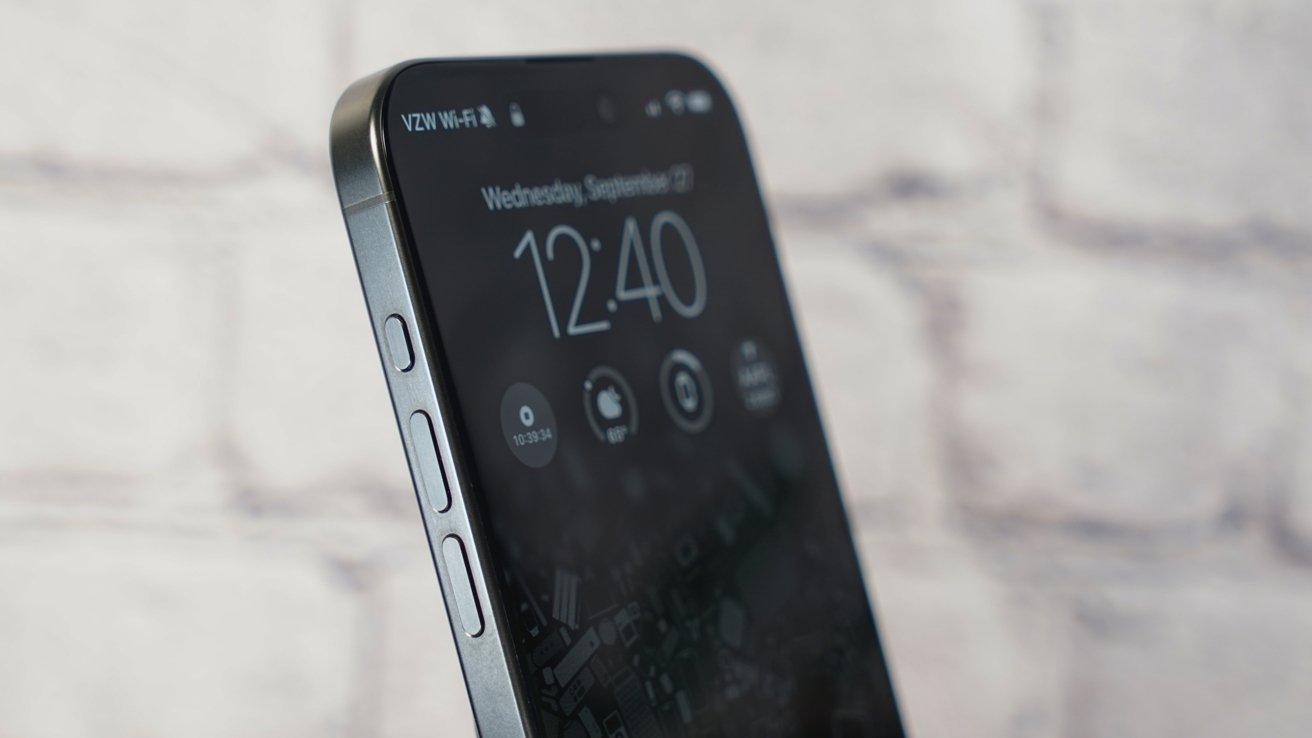Apple's in-house modem project won't be ready until late 2025
Development of an in-house modem at Apple has hit multiple snags, with the latest delay pushing development further into 2025 or later.

iPhone 15 Pro Max has a Qualcomm modem
Apple's modem provider is Qualcomm, and the two companies have had a rocky history with legal issues and competition. Apple reportedly was aiming for an early 2025 release for an in-house modem, but that project keeps hitting snags.
According to a report from Bloomberg, Apple is going to miss it's spring 2025 release window. People familiar with the matter say Apple could postpone the release until late 2025 or early 2026.
Apple recently extended its contract with Qualcomm to 2026. That contract extension came as a surprise considering Qualcomm's CEO expected Apple would have its in-house modem ready in 2024.
Designing a modem is no small feat. It requires a chip that can efficiently connect to cellular networks around the world and provide competitive speeds.
Previous reports said Apple's modem development was three years behind Qualcomm's.
Apple is determined to develop its own modem because it likes having control of the entire hardware and software stack. However, unlike ditching Intel for Apple Silicon, Qualcomm is a leader in the space and will be difficult to surpass, let alone match.
The iPhone SE 4 was initially rumored to be a test bed for the in-house modem, but that project was scrapped. With these latest delays, it isn't clear if Apple will ever release a modem, but work on the project will continue even if it never sees the light of day.
Read on AppleInsider

Comments
Apple needs to work out how to build the modem without stepping on those and that is obviously proving very hard to do.
I don't know what their goals are with the modems, but would seem to me they have to start even more modestly and develop modems for Macs, iPads, and Watches. Maybe even Apple TV. Just a no frills 5G modem that doesn't have to be the top of the class in power efficiency. Then, try to work their way to the state of the art for iPhones.
5.5G is already popping up in limited scenarios.
The possibility of 'winning' is unrealistic given the decades of knowhow accumulated by competitors and their patent portfolios.
Apple acquired a legup through Intel but Intel was clearly having a hard time delivering. Everything currently points to Apple suffering from the same delivery problems.
Giving them time is fine, but it's also worth considering the possibility that they simply bit off more than they could chew.
Apple wins if they can charge the same price for a lower product cost or charge more for the same product cost.
They don't care what product share they have in the Market of "cellular service chips"
With billions already invested in the effort and a final product still apparently years off, things become less clear cut.
I think that, strategically, it's important for Apple but that's assuming they can actually produce a competitive product.
If they can't, it might just make more economic sense just to stick with Qualcomm.
Qualcomm itself is laying off a not insubstantial number of staff due to business constraints.
5.5G and 6G are advancing development and on track. There are some very interesting capabilities being lined up.
The network 'as a sensor' is already in use with industrial ZE-IoT.
Take a look at some of the thinking behind using wireless signals themselves as sensors (eliminating the need for certain wearable sensors for example):
Pdf:
https://www-file.huawei.com/-/media/corp2020/pdf/publications/huawei-research/2023/huawei-research-issue5-en.pdf
Producing a modem to work with signals is a must but, at this point in time, you also really need to be in on the ICT stack too.
That is a huge amount of scientific research and engineering.